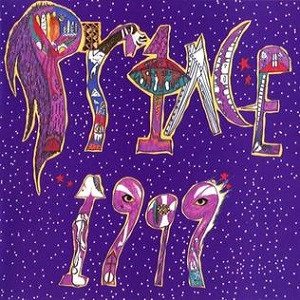Prince left his mark on pop and won international fame with this album in 1982. Influencing ’80s pop with its electrofunk sound, this album drips with style and sex appeal and could leave you wishing it was 1982 again.
This was Prince’s fifth album and his first to feature the band Revolution. Heavy on the funk and synth sound that had defined his earlier work, this album also laid on the sex and the vocal prowess that would help drive his later albums.
Kicking off with the title track “1999,” which needs no introduction, sets its style and tone right out of the gate. The lyric “Life is just a party, and parties weren’t meant to last,” is one for the ages – Prince knew his audience and had them from this first track.
“Little Red Corvette” is an irresistible song that oozes with Prince’s sex appeal and vocal confidence. Some lyrics haven’t aged well, as Prince sings about a woman who has had many lovers before him (“Cause I felt a little ill/ When I saw all the pictures/ of the jockeys that were there before me”) but as a pop single it signaled the effortless style and sexual prowess that were already defining his image.
Songs like “Delirious” about a woman driving Prince crazy, and “Let’s Pretend We’re Married” have enough classic pop sensibility to transcend their standard synth beats. “Delirious” uses a rubbery bass guitar for a rockabilly sound and a recognizable “squeaky” keyboard hook.
The next two songs, “D.M.S.R” and “Automatic” are perhaps the most boldly sexual on the album. “D.M.S.R” has a delicious hook and features detached vocals and lyrics ideal for a party that is “loose” and free of inhibitions.
Then “Automatic” starts off the third side of the album with a prominent synthesizer melody and edgy bondage imagery. Its music video, which depicted Prince being tied up and whipped by band members Lisa Coleman and Jill Jones, was kept off of MTV for being “too sexual” in 1983.
“Something in the Water (Does Not Compute)” pulls out more of Prince’s tricks with the synthesizer, experimenting with more of the electro-funk sound he was developing. Once the tone shifts in “Free,” however, he is able to play with a new theme entirely. The song begins with footsteps and high, simple vocals before moving to a keyboard-driven base as he ponders freedom in this slow ballad.
“Lady Cab Driver” is one of my personal favorites on the album, with funk-laden bass and percussion. It’s surrounded by atmospheric sounds of the city as Prince propositions his driver, and more (“This is for discrimination and egotists who think supreme/And this is for whoever taught you to kiss/In designer jeans”).
As a closer, he takes his time with the emotion and release on “International Lover,” showing no shame in begging the listener to stay “on-board” for satisfaction. With lyrics comparing sex to air travel with himself as the captain, this song would help make Prince an international star by showing off his vocal range from bass to his aching, high falsetto. Prince would receive his first Grammy Award nomination in 1984 in the category of Best Male R&B Vocal Performance for it.
Defining a pop legacy
Even if electro-funk, or Prince, aren’t your thing, “1999” has such a personality and sound of its own that I think it’s worth at least one listen. As a blueprint for Prince’s defining style, this one everything that made him known internationally and thrust him to iconic status (the album was his first top ten entrance on the Billboard 200 chart in the United States and was eventually certified quadruple platinum by the RIAA).
With funk this delectable, you might be dressing up for a night out on the town by the last track. And this album will be in your ears while you’re at it.
Natalie Hanson can be reached at artseditor@theorion.com or @Natalie H_Orion on Twitter.








